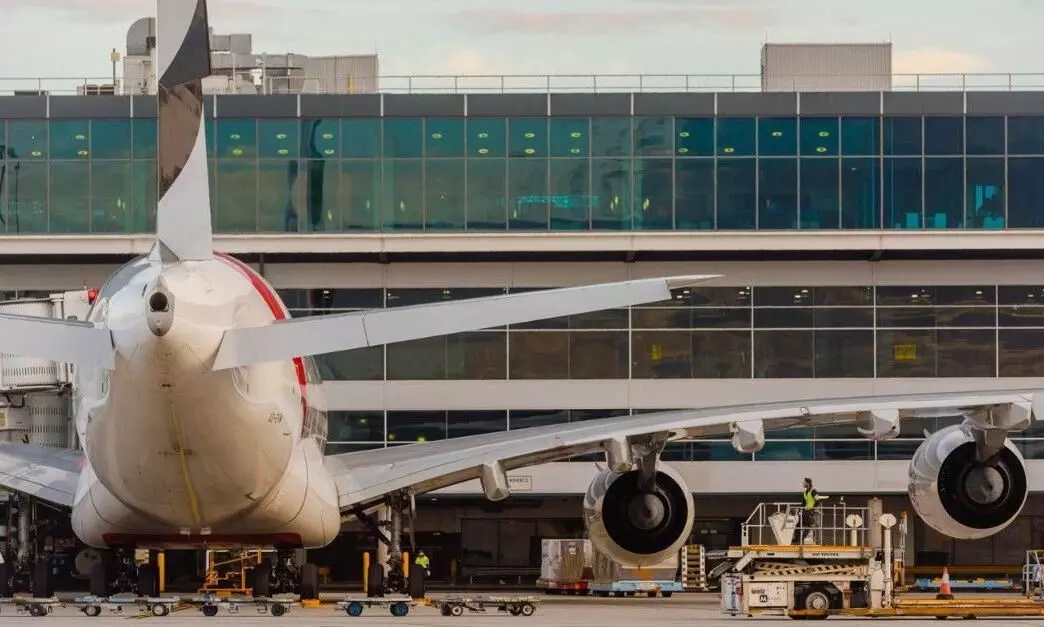
Melbourne Airport drives record export growth for Victoria
In the first three months of 2024, Melbourne Airport handled 44,700 tonnes of local cargo exports, accounting for 40.2% of Australia's total air-freight export volume

Image Source: Melbourne Airport/Linkedin
Melbourne Airport, which handles more than 30% of Australia's international air freight market, is cementing its position as Australia's leading export hub, playing a crucial role in Victoria's booming export industry. In the first three months of 2024, Melbourne Airport handled 44,700 tonnes of local cargo exports, accounting for 40.2% of Australia's total air-freight export volume. This performance has contributed to Victoria's overall exports growth with total exports reaching A$17.6 billion in the June quarter, marking a 3.6% increase, according to Melbourne Airport. This growth is largely attributed to Melbourne Airport's expanded capacity and strategic operations.
"We now have three times the number of dedicated international freighter flights than in 2019, plus record cargo capacity in the hold of international aircraft," according to a LinkedIn post by Melbourne Airport. “This growth highlights the critical role our curfew-free operations play in Victoria’s economy, with the average daily international flight worth A$154 million to the state.”
Supporting this growth is a network of over 2300 weekly services, including more than 35 monthly freight services operated by dedicated carriers such as Polar Air, Cathay Pacific, and Singapore Airlines. Further enhancing its cargo capabilities, Qantas announced the addition of Melbourne to one of its weekly trans-Tasman freighter services from 10 September 2024, opening up capacity from southern states into New Zealand.
The diversity of exports passing through Melbourne Airport is notable. According to a report by Melbourne Airport, data from Maritrade highlighted two key export categories: fresh meat leading by volume with 15,649 tonnes exported, while pharmaceutical products reaching the top of the value chart with exports worth over A$258.4 million.
The airport's pivotal role in driving exports is reflected in its robust financial results for FY23:
- Total revenue surged by 93.5% to A$1.04 billion.
- Aeronautical revenue saw a significant increase of 136.7% to A$432.7 million.
- EBITDA (Earnings Before Interest, Taxes, Depreciation, and Amortization) grew by 132.6% to A$693.8 million.
- Net profit after tax rose by 827.8% to A$146.8 million.
Additionally, Melbourne Airport's international reach continues to expand, with China's privately-owned Juneyao Airlines recently announcing plans to launch direct flights between Melbourne and Shanghai from December 2024. The airline will initially operate three weekly flights from 19 December, increasing to a daily service during peak season in January and February.
Lorie Argus, CEO, Melbourne Airport, commented on this development: "Choosing Melbourne as their first Australian destination is an incredible vote of confidence in Victoria, and Juneyao Airlines' quality service and extra cargo capacity will help further strengthen ties with China."
To keep pace with Victoria's growing population and support key industries, Melbourne Airport also has plans for a third runway. This expansion is expected to further boost the airport's capacity and efficiency in handling both passenger and cargo traffic. The airport is actively partnering with the Victorian State Government to expand international airline capacity, strengthen cargo operations, and increase local job opportunities.

